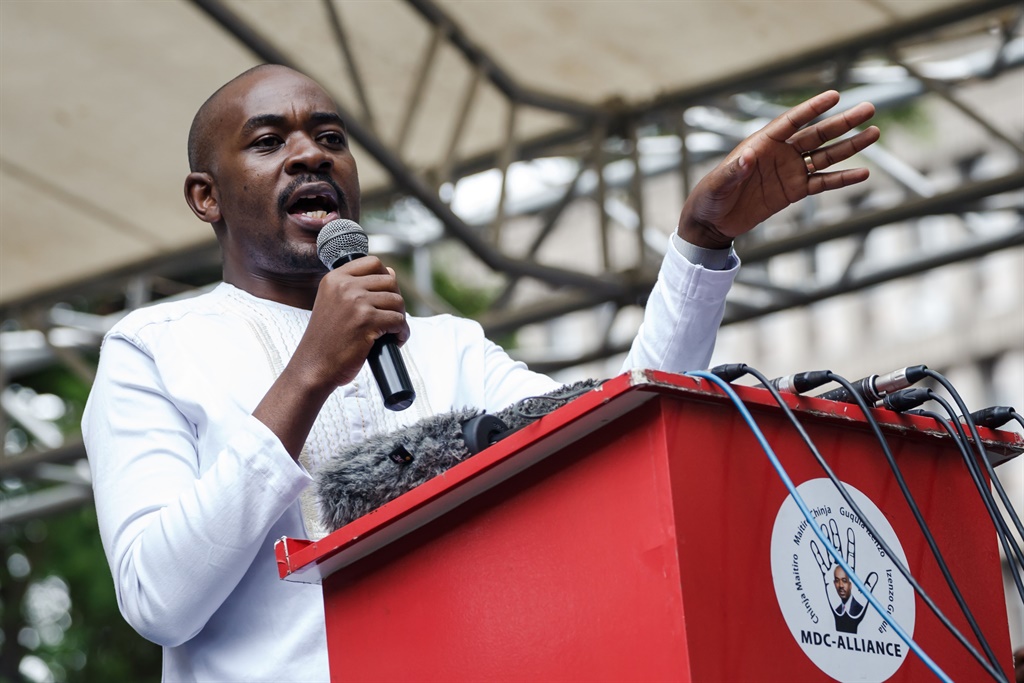

Zimbabwe’s main opposition leader warned his supporters to prepare for more demonstrations to force political and economic change in a country lurching from one crisis to another.
Movement for Democratic Change (MDC) leader Nelson Chamisa addressed thousands of supporters in Mbare township at a rally that had previously been barred by authorities, who cited security concerns.
Officials gave the go-ahead on Tuesday after stopping it earlier this month saying they were too busy to police the rally.
Police were absent from the venue, but officers stood in clusters along the road leading to the grounds of Stoddart Hall, once a popular venue for political meetings that gave birth to nationalist movements during colonial rule.
In November, riot police fired tear gas and beat opposition supporters after barring Chamisa’s planned address to his supporters outside the party headquarters in the city centre.
ANALYSIS | 3 things keeping Zim’s finance minister awake at night
“The constitution allows (us) to demonstrate when we feel it’s necessary. So this is going to be a year of demos and action,” Chamisa said.
“There is no gun that is able to stop you, there is no politician that is powerful enough to stop you, so Zimbabweans always remember your rights (to protest).”
Zimbabwe is in the throes of an entrenched economic crisis that has rendered basic goods out of reach for most people whose earnings have been wiped out by galloping inflation – one of the highest in the world.
The worst drought in 40 years has added to the misery of Zimbabweans with more than half of the country’s 15 million people now facing food shortages.
Chamisa, who narrowly lost to President Emmerson Mnangagwa in the disputed 2018 elections, told his followers that he was prepared to negotiate with his political opponent to find a solution to the crises confronting the country.
He dismissed current talks between the government and 19 of the smaller parties that lost the 2018 poll, as a sideshow.
Since Mnangagwa took over the southern African country following the 2017 coup that deposed long-time authoritarian ruler Robert Mugabe, Zimbabwe has sunk deeper into a political and economic quagmire.
MUST READ | Zim government workers offered allowances after 97% pay increase rejected
The government has been accused of harassment and abduction of opposition members and human rights defenders.
Efforts to re-engage with the Western countries have also failed to bear fruit. Chamisa cited Zimbabwe’s failure to be invited to the UK-Africa Investment Summit held in London this week, as a sign that the country’s re-engagement efforts have been unsuccessful.
